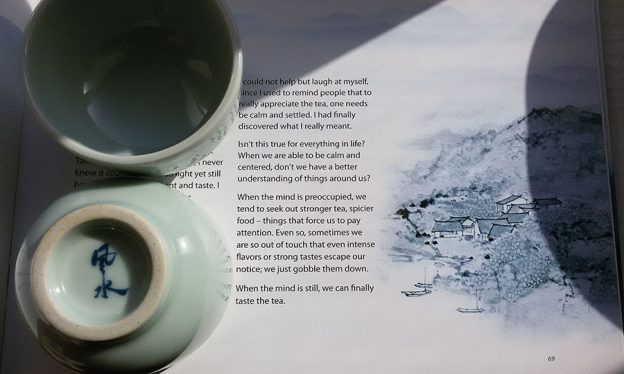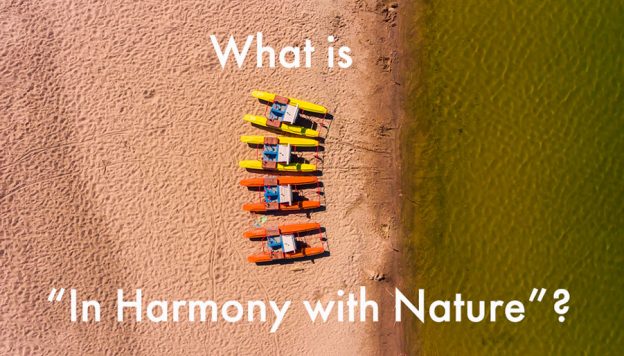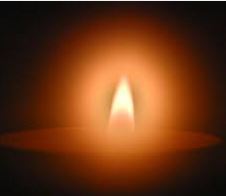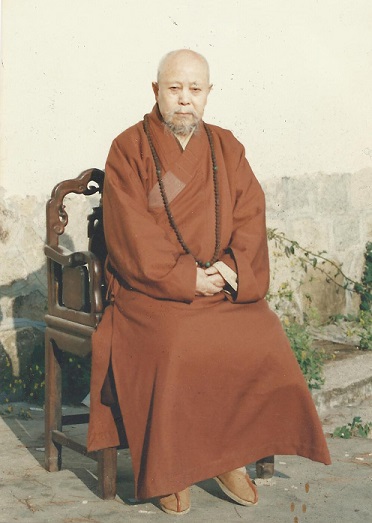 Pu Yu (????) was the 133rd head master of Yungquan (“Bubbling Spring”) Temple on Gu Shan (“Drum Mountain”) in Fuzhou, China. Established in the Tang dynasty, this monastery has over 1,200 years of history. I formally became his disciple in the late 1970s, just a few years after the end of the Cultural Revolution. At that time, due to the long suppression of religion in China, the temple had few monks and hardly any visitors. As a result, I was able to enjoy quite a bit of time with Master Pu Yu during my stay.
Pu Yu (????) was the 133rd head master of Yungquan (“Bubbling Spring”) Temple on Gu Shan (“Drum Mountain”) in Fuzhou, China. Established in the Tang dynasty, this monastery has over 1,200 years of history. I formally became his disciple in the late 1970s, just a few years after the end of the Cultural Revolution. At that time, due to the long suppression of religion in China, the temple had few monks and hardly any visitors. As a result, I was able to enjoy quite a bit of time with Master Pu Yu during my stay.
Once I visited him in his private room while he was making tea, and he handed me a cup of steaming brew. The cups in the monastery were bigger than the tea cups usually seen in homes. It was a Song dynasty design, with a soft celadon glaze. I bowed, accepted it with both hands, and carefully took the first sip.
This was a special oolong tea known as “rock tea,” which has a bittersweet taste but a robust aroma with a hint of smoke in its flavor. While we had tea, I asked, “Master, what exactly is Zen mind?”
He smiled, but went on talking about tea.
After a while, when I had nearly finished my cup, I was about to repeat my question. He looked at my nearly empty cup, looked at me directly, and said very quietly, “So, do you remember?”
I was puzzled.
After a short moment, I asked, “Remember? Remember what?”
“Didn’t you just ask me about Zen mind?” he replied.
I tried to figure out what he meant, but was still confused.
“Do you remember the very moment you took the first sip?” he asked, looking right into my eyes.
After pausing briefly, he continued, “Do you remember that moment? Before you could tell whether the tea was hot or warm? Before you could differentiate smell from taste? Before you could tell what kind of tea it was? Do you remember that moment?”
As soon as I heard Master Pu Yu’s words, I understood: that moment is the state of Zen mind.
I looked at him and smiled in silence. He nodded and smiled back. It was but a brief moment; yet I have retained this memory for decades.
The foundation of Zen teaching is this: no matter where we are or what we are doing, we must fully live at that moment.
So, do you remember?








 Pu Yu (????) was the 133rd head master of Yungquan (“Bubbling Spring”) Temple on Gu Shan (“Drum Mountain”) in Fuzhou, China. Established in the Tang dynasty, this monastery has over 1,200 years of history. I formally became his disciple in the late 1970s, just a few years after the end of the Cultural Revolution. At that time, due to the long suppression of religion in China, the temple had few monks and hardly any visitors. As a result, I was able to enjoy quite a bit of time with Master Pu Yu during my stay.
Pu Yu (????) was the 133rd head master of Yungquan (“Bubbling Spring”) Temple on Gu Shan (“Drum Mountain”) in Fuzhou, China. Established in the Tang dynasty, this monastery has over 1,200 years of history. I formally became his disciple in the late 1970s, just a few years after the end of the Cultural Revolution. At that time, due to the long suppression of religion in China, the temple had few monks and hardly any visitors. As a result, I was able to enjoy quite a bit of time with Master Pu Yu during my stay.